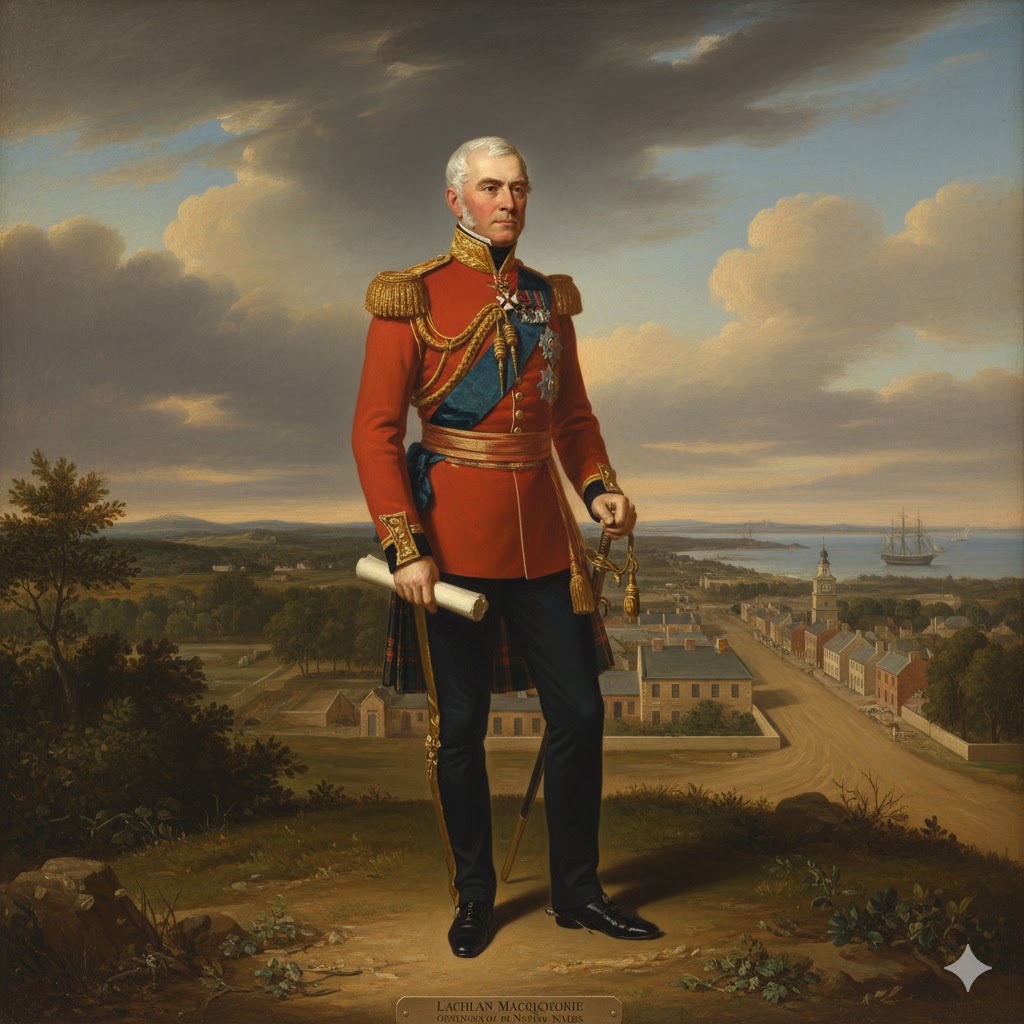
Lachlan Macquarie was a significant figure in Australian colonial history, serving as the Governor of New South Wales from 1810 to 1821. Often referred to as the “Father of Australia,” he played a major role in transforming the colony from a penal settlement into a structured and developing society.
Some key points about him:
- Background: Born in 1762 on the Isle of Mull, Scotland, Macquarie served in the British Army before his appointment as governor.
- Governorship: He introduced social and economic reforms, encouraged exploration, and commissioned public works such as roads, buildings, and towns.
- Vision: Macquarie believed in the potential for reformed convicts to become productive citizens, which was a progressive stance for his time.
- Legacy: Many places in Australia bear his name, including Macquarie Street in Sydney, Lake Macquarie, and Macquarie University.
His tenure wasn’t without controversy—his policies often clashed with the British authorities and the wealthy landowners known as the “Exclusives.” Nonetheless, his influence on Australia’s early development remains profound.
Discover more from WILLIAMS WRITINGS
Subscribe to get the latest posts sent to your email.

